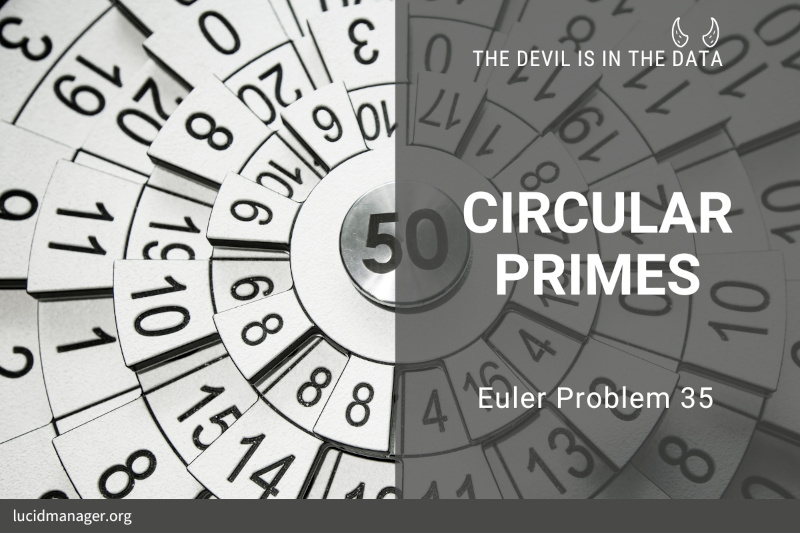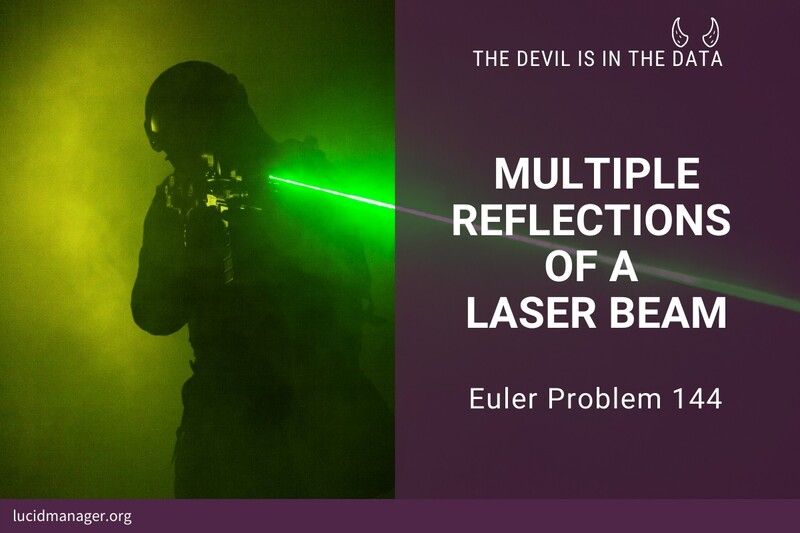
Project Euler 17: Number Letter Counts

Peter Prevos |
725 words | 4 minutes
Share this content
Project Euler 17 asks to count the letters in numbers written as words. This is a skill we all learnt in primary school mainly useful when writing cheques—to those that still use them. The principle for this problem is similar to Project Euler 22, which analyses given names.
Each language has its own rules for writing numbers. My native language Dutch has very different logic to English. Both Dutch and English use compound words after the number twelve.
Linguists have theorised this is evidence that early Germanic numbers were duodecimal. The importance of a “dozen” as a counting word and the twelve hours in the clock support this idea. There is even a Dozenal Society that promotes the use of a number system based on 12.
The English language changes the rules when reaching the number 21. While we say eight-teen in English, we do no say “one-twenty”. Dutch stays consistent and the last number is always spoken first. For example, 37 in English is “thirty-seven”, while in Dutch it is written as “zevenendertig” (seven and thirty).
Project Euler 17 Definition
If the numbers 1 to 5 are written out in words: one, two, three, four, five, then there are 3 + 3 + 5 + 4 + 4 = 19 letters used in total. If all the numbers from 1 to 1000 (one thousand) inclusive were written out in words, how many letters would be used?
Do not count spaces or hyphens. For example, 342 (three hundred and forty-two) contains 23 letters, and 115 (one hundred and fifteen) contains 20 letters. The use of “and” when writing out numbers is in compliance with British usage.
Solution
The first piece of code provides a function that generates the words for numbers 1 to 999,999. This is more than the problem asks for, but it might be a useful function for another application. The last line concatenates all words and removes the spaces to count the number of letters.
## Project Euler 17: Number Letter Counts
numword.en <- function(x) {
if (x > 999999) return("Error: Oustide my vocabulary")
# Vocabulary
single <- c("one", "two", "three", "four", "five", "six", "seven", "eight", "nine")
teens <- c( "ten", "eleven", "twelve", "thirteen", "fourteen", "fifteen", "sixteen", "seventeen", "eighteen", "nineteen")
tens <- c("ten", "twenty", "thirty", "forty", "fifty", "sixty", "seventy", "eighty", "ninety")
numword.10 <- function (y) {
a <- y %% 100
if (a != 0) {
and <- ifelse(y > 100, "and", "")
if (a < 20)
return (c(and, c(single, teens)[a]))
else
return (c(and, tens[floor(a / 10)], single[a %% 10]))
}
}
numword.100 <- function (y) {
a <- (floor(y / 100) %% 100) %% 10
if (a != 0)
return (c(single[a], "hundred"))
}
numword.1000 <- function(y) {
a <- (1000 * floor(y / 1000)) / 1000
if (a != 0)
return (c(numword.100(a), numword.10(a), "thousand"))
}
numword <- paste(c(numword.1000(x), numword.100(x), numword.10(x)), collapse=" ")
return (trimws(numword))
}
answer <- nchar(gsub(" ", "", paste0(sapply(1:1000, numword.en), collapse="")))
print(answer)Writing Numbers in Dutch
I went beyond Euler Problem 17 by translating the code to spell numbers in Dutch. Interesting bit of trivia is that it takes 307 fewer characters to spell the numbers 1 to 1000 in Dutch than it does in English. It would be good if other people can submit functions for other languages in the comment section. Perhaps we can create an R package with a multi-lingual function for spelling numbers.
## Nederlandse nummers
numword.nl <- function(x) {
if (x > 999999) return("Error: Getal te hoog.")
single <- c("een", "twee", "drie", "vier", "vijf", "zes", "zeven", "acht", "negen")
teens <- c( "tien", "elf", "twaalf", "dertien", "veertien", "vijftien", "zestien", "zeventien", "achtien", "negentien")
tens <- c("tien", "twintig", "dertig", "veertig", "vijftig", "zestig", "zeventig", "tachtig", "negengtig")
numword.10 <- function(y) {
a <- y %% 100
if (a != 0) {
if (a < 20)
return (c(single, teens)[a])
else
return (c(single[a %% 10], "en", tens[floor(a / 10)]))
}
}
numword.100 <- function(y) {
a <- (floor(y / 100) %% 100) %% 10
if (a == 1)
return ("honderd")
if (a > 1)
return (c(single[a], "honderd"))
}
numword.1000 <- function(y) {
a <- (1000 * floor(y / 1000)) / 1000
if (a == 1)
return ("duizend ")
if (a > 0)
return (c(numword.100(a), numword.10(a), "duizend "))
}
numword<- paste(c(numword.1000(x), numword.100(x), numword.10(x)), collapse="")
return (trimws(numword))
}
antwoord <- nchar(gsub(" ", "", paste0(sapply(1:1000, numword.nl), collapse="")))
print(antwoord)Share this content


